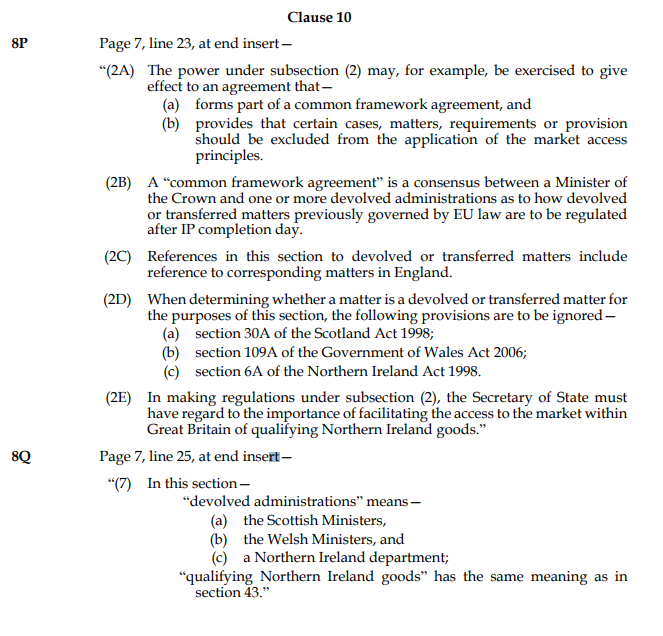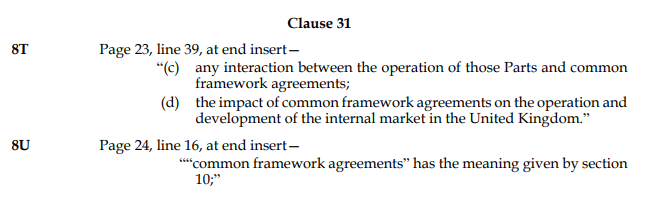https://t.co/kYCBzZt7IB
Yesterday saw the Government reach a compromise with Peers over the devolution aspects of the UK Internal Market Bill. The Lords were standing strong over an amendment on Common Frameworks - so what has been agreed & where do we go now? 🧵
https://t.co/kYCBzZt7IB

Both the Scottish and Welsh Parliaments have refused consent for the bill under the Sewel Convention. The SP is very unlikely to change it's mind, the Welsh? It's not looking promising 👇
https://t.co/21fAxMIJjQ
Hugely grateful to peers for their defence of devolution and acknowledge that UKG has moved a little.
— Jeremy Miles (@wg_CounselGen) December 15, 2020
But the Bill still allows UK Ministers to undermine right of @SeneddWales to make laws and policies which reflect the priorities of the people they serve.https://t.co/bpN3C1io8Q
Theses are 2 separate programme of work, the first run by BEIS, the second in policy departments with oversight from the Cabinet Office - but they are now linked in law. Serious thought must be given to make them coherent

Intergovernmental disputes over the application of the UKIM bill are inevitable. Common frameworks have their own dispute resolution procedures, BEIS has structures & we're waiting on the outcome of the IGR review. Any processes must be fair
More from Government
1.
Act of 1871
This is VERY Long but it will end with a MEGA BOOM!
Bookmark it and read it in small bits to digest it all.
This info, comes from some reputable anons and my own digging, compiled together as a superthread!
InevitableET, IPOT... to name a few.
2.
https://t.co/udep5WEYUp
https://t.co/bnzeQek6zv

3.
The TL; DR version is they, by military force, and illegitimate legislature, amended the constitution against the will of The People and legally tricked us into becoming unwitting indentured slaves of human capital and resources to THE UNITED STATES OF AMERICA the corporation)
4.
Republic vs Democracy
-They needed to get away from the Republic and create a Democracy in order to drive us towards socialism and inevitably a dictatorship (National Socialist Party aka NAZI)

5.
Flag

Act of 1871
This is VERY Long but it will end with a MEGA BOOM!
Bookmark it and read it in small bits to digest it all.
This info, comes from some reputable anons and my own digging, compiled together as a superthread!
InevitableET, IPOT... to name a few.
2.
https://t.co/udep5WEYUp
https://t.co/bnzeQek6zv

3.
The TL; DR version is they, by military force, and illegitimate legislature, amended the constitution against the will of The People and legally tricked us into becoming unwitting indentured slaves of human capital and resources to THE UNITED STATES OF AMERICA the corporation)
4.
Republic vs Democracy
-They needed to get away from the Republic and create a Democracy in order to drive us towards socialism and inevitably a dictatorship (National Socialist Party aka NAZI)

5.
Flag























